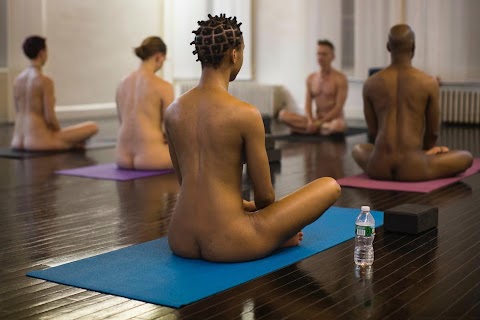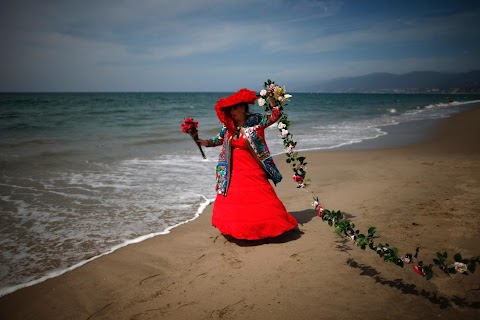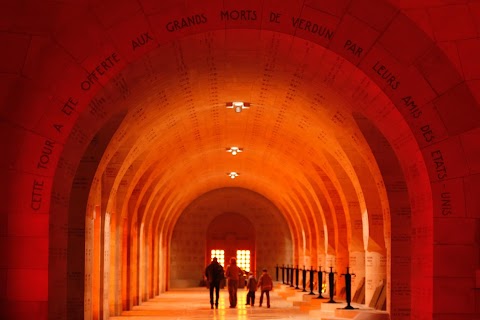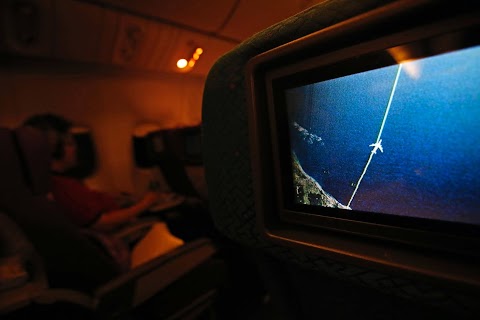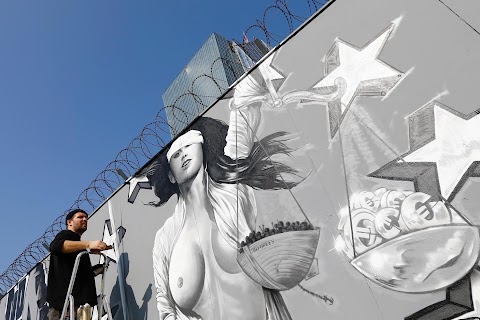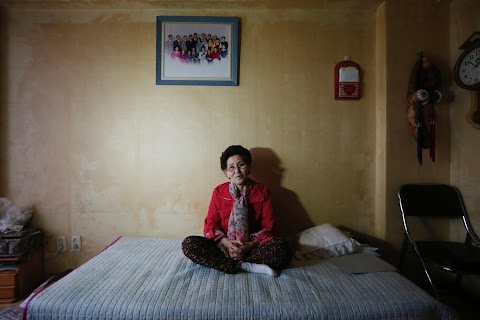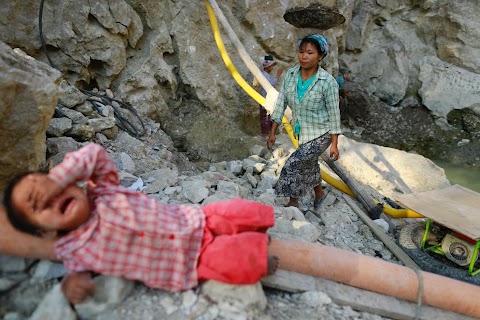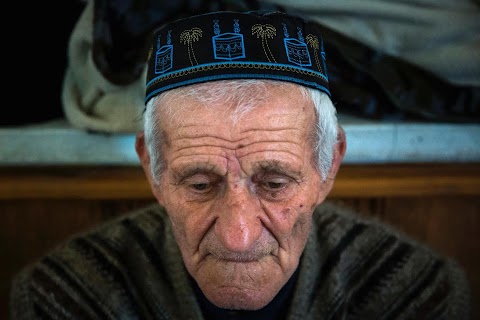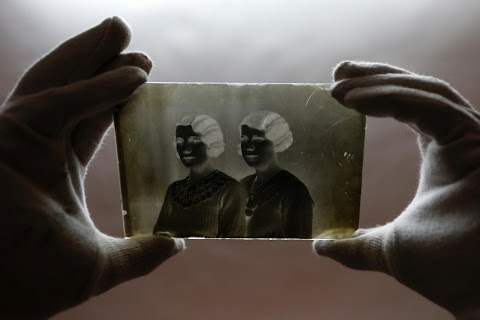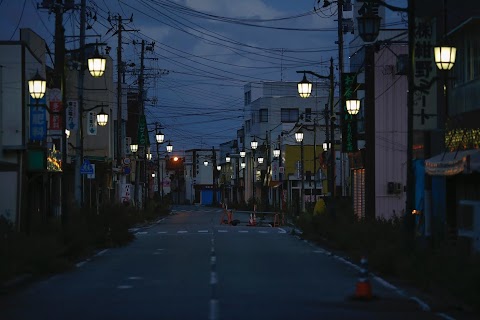
Inside Nollywood
 Akintunde Akinleye
Akintunde Akinleye
Nigeria's movie business, popularly known as Nollywood, is one of the biggest in the world. According to UNESCO the industry produced around 1,000 movies in 2011 – more than the number that came out of the United States – although most were released only in video formats.
Reuters photographer Akintunde Akinleye documented life behind the scenes in the prolific business, which churns out huge numbers of films often on shoestring budgets.

In the image above, a cameraman records a scene from a movie titled 'October 1' directed by the renowned Kunle Afolayan.
Afolayan was profiled in the New York Times under the headline ‘a Scorsese in Lagos’ and his recent movie is a thriller set in the run-up to Nigeria’s 1960 independence from British rule. It is one of the many productions - normally much more informal - that come out of Nigeria every year.

Nollywood productions are not only popular in the country where they are made. They also have a growing audience among Africans living abroad, keen for a taste of home.

Large numbers of the films are produced in local languages – Yoruba, Hausa and Igbo among them – while many others are made in English.
Slideshow

Cast members perform a night scene during the making of 'October 1'.

An actor performs as a murdered policeman during the film shoot.

Actors hold flaming torches as they act in a scene in 'October 1' on location in Akure, southwest Nigeria.

Cast members perform a night scene during the shooting of 'October 1'.

Crew members work behind the scenes during the making of the film.

Actors Sadiq Daba (left) and Aderupoko ride bicycles during the film shoot in Ilaramokin village, southwest Nigeria.

An actress lies on the ground as artificial blood is applied to her chest.

Cast members perform a scene during the making of 'October 1'.

Kunle Afolayan directs a scene from the movie.

A young actor is seen through a camera during the making of 'Ake,' a film based on the childhood memoir of Wole Soyinka, a Nigerian who won the Nobel Prize for literature in 1986.

An actress holds a slate during the making of the film.

A cameraman films a scene of 'Ake'.

Nigerian director Tunde Kelani directs a scene from the film 'Dazzling Mirage' on the outskirts of Lagos.

Cast members act a scene from the movie.

A crew member holds a microphone during the making of 'Dazzling Mirage'.

Cast members perform in the movie.

Male cast members act a scene.
"Long before I started working on this assignment, I had thought about exploring the story of Nollywood."
I wasn’t sure if my pictures of Nigeria’s film industry, or “Nollywood” as it is fondly called, would ever make it to publication.
As I spent time stringing the project together, I met barrier after barrier. Lots of my appointments with producers and other contacts fell through. In cases where it seemed like I would be given the green light to take pictures, the location of shootings would change without notice. Getting access to the new luxurious cinemas in the metropolis of Lagos was hellish. But slowly, I managed to make headway.
Long before I started working on this assignment, I had thought about exploring the story of Nollywood. I first hit on the idea at the beginning of 2008 when a friend, who is a model and actress, suggested taking a trip to India to shoot a collaborative movie between Nigerian and Bollywood actors on location. Unfortunately, the trip never happened.
Recently, however, I had the chance to rejuvenate my idea through Reuters' Wider Image desk, which commissions in-depth photo stories. I wanted to explore the reasons why Nigeria’s Nollywood has been so successful in a continent where conflict and poverty are rife.
Millions across Africa watch Nigerian films. They are as popular abroad as they are at home. I remember taking a shuttle bus while on holiday in Gabon a couple years ago and as I settled down in my seat, the screen started playing a movie. It was an export from Nigeria.
Nollywood has generated a great deal of money, not just for those directly involved in the movies, but also in other areas like advertising and corporate sponsorship. Thousands of movies are produced on shoestring budgets for different media formats, and they have fed emerging digital television channels for decades.
At an academic forum at the University of Lagos, a friend told me recently that Nigerian film has also played an important role in downplaying the political tensions in Nigeria. She argued that Nollywood movies soothed the nation, and had even helped prevent civil war.
I cannot really agree – I think the movies are mostly just entertainment. But after seeing the works of Nigerian film producers like Kunle Afolayan and his older counterpart Tunde Kelani, whose ingenious filmmaking incorporates political and satirical themes, you can see the importance of Nollywood in political communication.
Nigerian entertainment has changed a great deal since the 1950s and 60s, when theatre groups would travel between communities and villages in trucks and set up their stages. Now the film industry is so powerful that UNESCO reported in 2009 that it had overtaken America’s Hollywood in the number of films it produced, and its output was only surpassed by India’s Bollywood.
Last August I spent four days in the rainforest in Nigeria’s southwest, watching in amazement as cameras, lights, shadows, smoke, and a group of talented people, from electricians to costumiers, worked together to create one example of the media that is so influential across Africa and its diaspora.
The film, titled “October 1,” was set during a key moment of Nigerian history, just before independence, and shot by Kunle Afolayan.
Shortly before that, in July, I went to Abeokuta, also in Nigeria’s southwest, and spent another four days on-location to see the filming of "Ake". The movie was an adaptation of a childhood memoir by Nigerian Nobel Laureate for literature, Wole Soyinka, and produced by Dapo Adeniyi.
Many people have dismissed Nollywood as cheap and sensationalist. Others have argued that Nollywood has provided a much-needed platform for Africans to tell African stories. Whichever side of the argument you stand on, the story of Nollywood is one power and bright lights. I intend to follow it wherever it leads.
